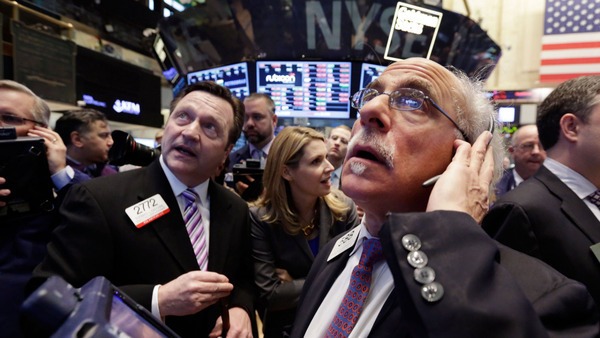During Friday’s Mid-Morning trade, Shares of Chesapeake Energy Corporation (NYSE:CHK), lost -2.93% to $6.95, as Oil prices resumed their downward trajectory Friday following on weak Chinese manufacturing data, as markets remain jittery due to concerns about global economic growth, according to Market Watch.
U.S. oil prices reversed overnight gains pressured by rising supply levels and are still vulnerable to falling below the key psychological price level of $40 a barrel. Market Watch Reports
Chesapeake Energy Corporation produces oil and natural gas through acquisition, exploration, and development of from underground reservoirs in the United States. It holds interests in natural gas resource plays, counting the Haynesville/Bossier Shales in northwestern Louisiana and East Texas; the Marcellus Shale in the northern Appalachian Basin of West Virginia and Pennsylvania; and the Barnett Shale in the Fort Worth Basin of north-central Texas.
Finally, Whole Foods Market, Inc (NASDAQ:WFM), gained 0.05 %, and is now trading at $32.87.
In its new ranking of 50 companies that “Change the World,” Fortune magazine recognizes Whole Foods Market (Nasdaq: WFM) for “doing well by doing good.” The company ranks No. 30 on the list, which will appear in the magazine’s Sept. 1 issue.
Fortune highlights Whole Foods Market’s position at the forefront of food consciousness, noting the company’s role in creating the market for natural, healthy food: “The Austin-based grocer prompted giants from Walmart to Kroger to up their organic game. Whole Foods continues to push for change through initiatives like its animal-welfare standards, its refusal to sell overfished seafood, and its requirement that all products it sells containing genetically modified ingredients be labeled as such by 2018.” Fortune also quotes New York University food studies, nutrition, and public health professor Marion Nestle as saying the company “set a standard for grocery stores.”
“It’s incredibly rewarding to be comprised of on Fortune’s list because it represents the culmination of decades of passion and dedication our team members have invested in our mission,” said co-CEO Walter Robb. “Collectively, we believe it is our responsibility to co-create a world where everyone can flourish, and that much of our success to date stems from having a bigger idea that draws in and inspires our team members to further shape and express that idea–or higher purpose–in large and small ways every day.”
Fortune’s Sept. 1 “Change the World” issue also features an article entitled “John Mackey: a conscious capitalist.” Mackey is a co-author of “Conscious Capitalism: Liberating the Heroic Spirit of Business,” a book that boldly defends the good of business and capitalism by presenting a way of thinking about the higher purpose of a business, its relationships with interconnected stakeholders and the impact it has on the world.
Whole Foods Market, Inc. operates as a retailer of natural and organic foods. The company’s stores offer produce and floral, grocery, meat, seafood, bakery, prepared foods and catering, coffee, tea, beer, wine, cheese, nutritional supplements, vitamins, and body care products, in addition to lifestyle products, counting books, pet products, and household products.
DISCLAIMER:
This article is published by www.wsnewspublishers.com. The Content included in this article is just for informational purposes only. All information used in this article is believed to be from reliable sources, but we make no representations or warranties of any kind, express or implied, about the completeness, accuracy, or reliability with respect to this article.
All visitors are advised to conduct their own independent research into individual stocks before making a purchase decision.
Information contained in this article contains forward-looking information within the meaning of Section 27A of the Securities Act of 1933 and Section 21E of the Securities Exchange Act of 1934, counting statements regarding the predictable continual growth of the market for the corporation’s products, the corporation’s ability to fund its capital requirement in the near term and in the long term; pricing pressures; etc.
Any statements that express or involve discussions with respect to predictions, expectations, beliefs, plans, projections, objectives, aims, assumptions, or future events or performance may be forward looking statements. Forward-looking statements are based on expectations, estimates, and projections at the time the statements are made that involve a number of risks and uncertainties, which could cause actual results or events to differ materially from those presently anticipated. Forward looking statements may be identified with such words as expects, will, anticipates, estimates, believes, or by statements indicating certain actions may, could, should/might occur.



